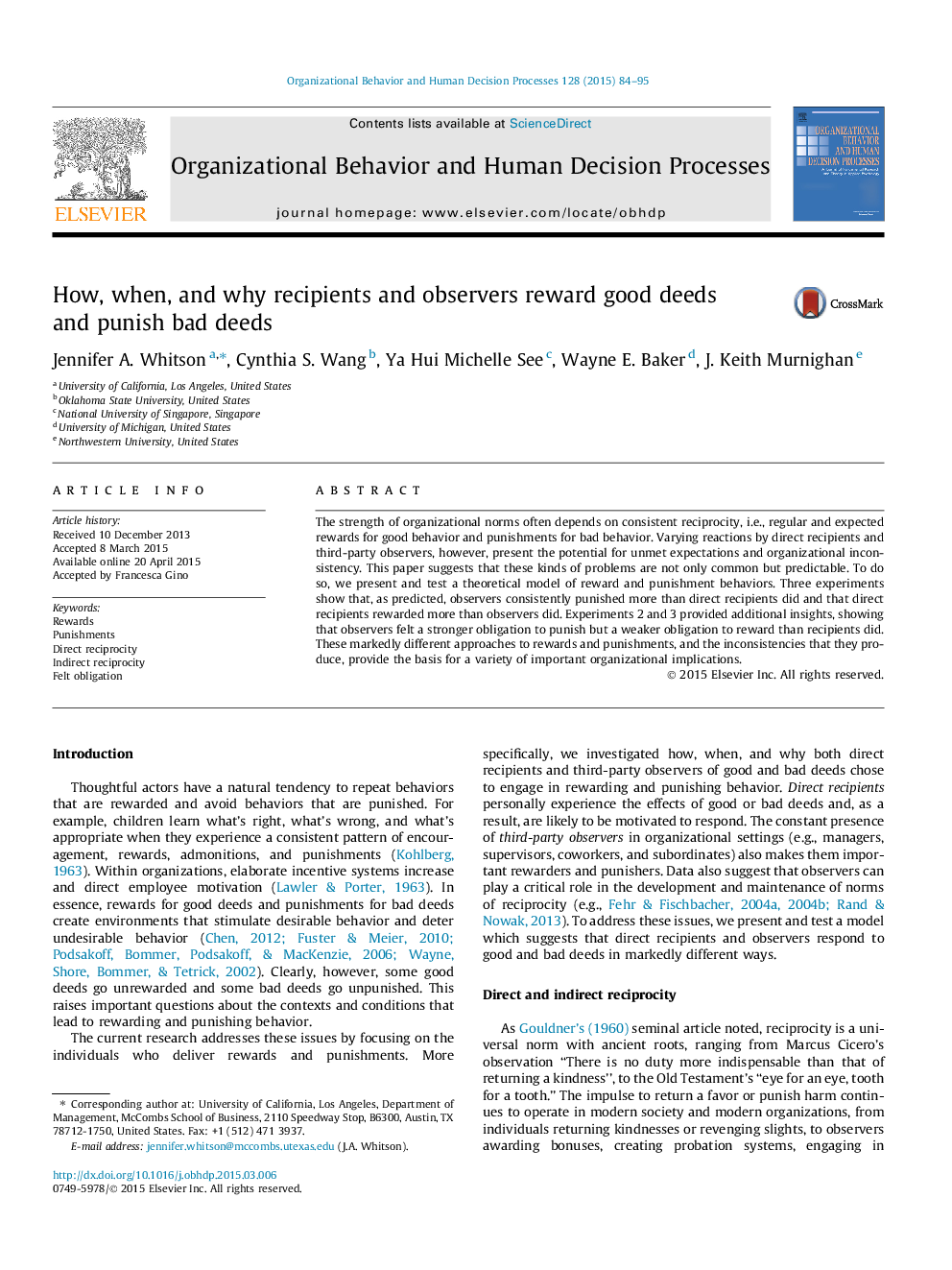| کد مقاله | کد نشریه | سال انتشار | مقاله انگلیسی | نسخه تمام متن |
|---|---|---|---|---|
| 888528 | 1471853 | 2015 | 12 صفحه PDF | دانلود رایگان |
• Observers punish more than recipients.
• Recipients reward more than observers.
• These effects are driven by higher felt obligation.
The strength of organizational norms often depends on consistent reciprocity, i.e., regular and expected rewards for good behavior and punishments for bad behavior. Varying reactions by direct recipients and third-party observers, however, present the potential for unmet expectations and organizational inconsistency. This paper suggests that these kinds of problems are not only common but predictable. To do so, we present and test a theoretical model of reward and punishment behaviors. Three experiments show that, as predicted, observers consistently punished more than direct recipients did and that direct recipients rewarded more than observers did. Experiments 2 and 3 provided additional insights, showing that observers felt a stronger obligation to punish but a weaker obligation to reward than recipients did. These markedly different approaches to rewards and punishments, and the inconsistencies that they produce, provide the basis for a variety of important organizational implications.
Journal: Organizational Behavior and Human Decision Processes - Volume 128, May 2015, Pages 84–95
